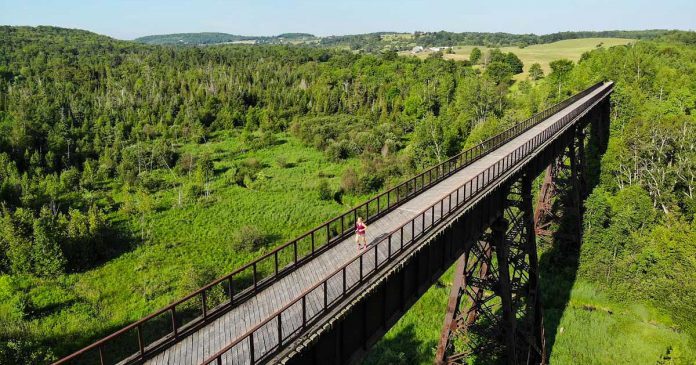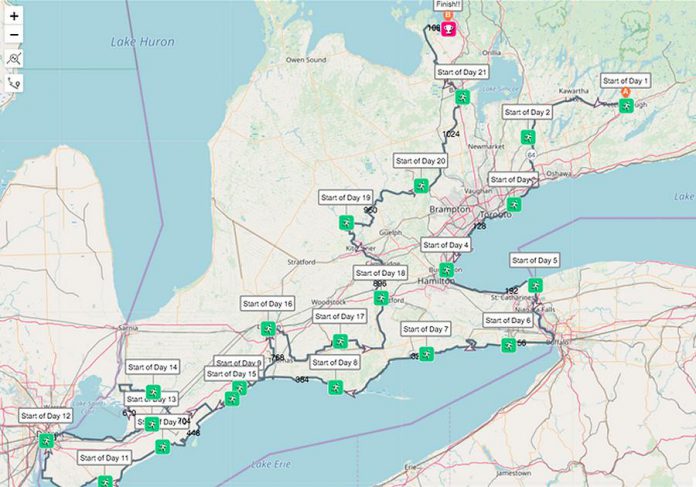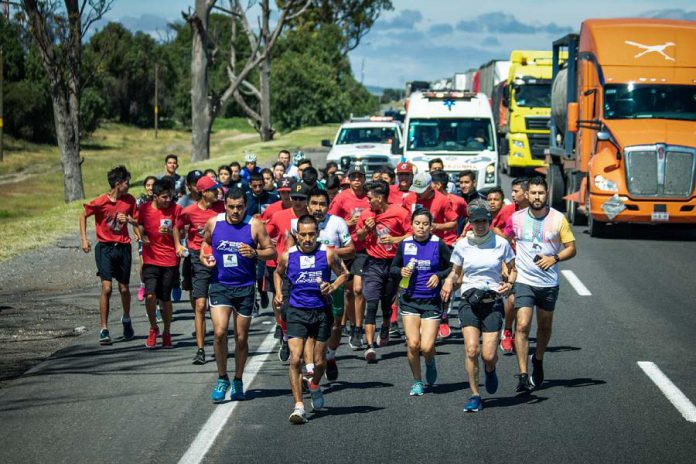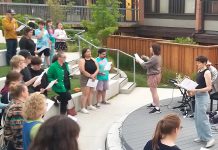
The Monarch Ultra Relay Run will return in September with a 21-day run across southern Ontario to raise awareness about the plight and flight of monarch butterflies, and ultra runners are invited to take part.
The inaugural run took place in fall 2019, when 46 ultra runners ran the monarch butterfly’s migratory route from Peterborough, Canada to Macheros, Mexico — an epic distance of more than 4,000 kilometres — in seven weeks. Along the way, they raised international awareness of the need to protect monarchs whose populations are in steep decline due to climate change, habitat loss, and pesticide use.
Due to the pandemic, this year’s run will take place only in southern Ontario but, at 1,800 kilometres, will be Canada’s longest relay run. The route will takes runners through cities and towns, greenways, and lakeshores along the Trans Canada Trail and the Waterfront Trail.
“This multi-day running adventure invites participants to traverse rural and urban landscapes, while it’s the journey and not the destination that matters most for this year’s relay run,” says Carlotta James, Monarch Ultra’s co-founder and project director.
Ultra runners will depart Peterborough on Sunday, September 19th and head southwest to Toronto, Burlington, Hamilton, St. Catharines, and Niagara Falls, before looping back around towards London, Cambridge and Kitchener, and ending in Barrie on Saturday, October 9th.
Each day, the Monarch Ultra team will cover 80 kilometres, with four running segments available per day (two segments of 30 kilometres and two segments of 50 kilometres).

All donations raised through the relay run will go directly to Camp Kawartha, a non-profit organization that offers nature education and environmental stewardship for youth.
“Camp Kawartha is just delighted to partner with the Monarch Ultra,” says Jacob Rodenburg, executive director of Camp Kawartha.
“Teaching children about the remarkable journey these beautiful winged beings take helps us to understand how interconnected the natural world really is. Protecting monarchs means protecting monarch habitat and habitat for other pollinators. And that in turn means healthier ecosystems for all living things.”
The Monarch Ultra team, comprised entirely of volunteers, is building partnerships with conservation organizations, schools, and municipalities to host community events and cheer the runners as they pass through dozens of cities. In addition to raising awareness about the monarch’s plight, the team is on a mission to inspire communities to create native gardens for pollinators.
“In our pursuit to raise awareness about the ecological challenges taking place in Canada and around the world, we have a responsibility to show that we care about nature and will protect it,” James says. “Through the Monarch Ultra, we have an opportunity to amplify our message for conservation action and to restore pollinator habitat across southern Ontario before it’s too late.”
The Monarch Ultra team will adhere to all COVID-19 health and safety protocols during the 21-day running event. Each segment will have a maximum of two physically distanced runners, and the support crew will be following all safety guidelines.

Depending on the status of the pandemic in the fall, the team also hopes to meet with students and teachers to encourage them to run for monarch butterflies and to plant pollinator gardens through the Mini-Monarch Ultra program. The team also plans to meet with mayors and politicians along the route to share the message of conservation and climate action.
There are 84 spots available for runners during the Monarch Ultra Relay Run. Runners who want to participate can register now at raceroster.com/events/2021/40048/monarch-ultra-relay-run.
For more information on the run, visit themonarchultra.com/relay-run.html or email Carlotta James at themonarchultra@gmail.com.


























